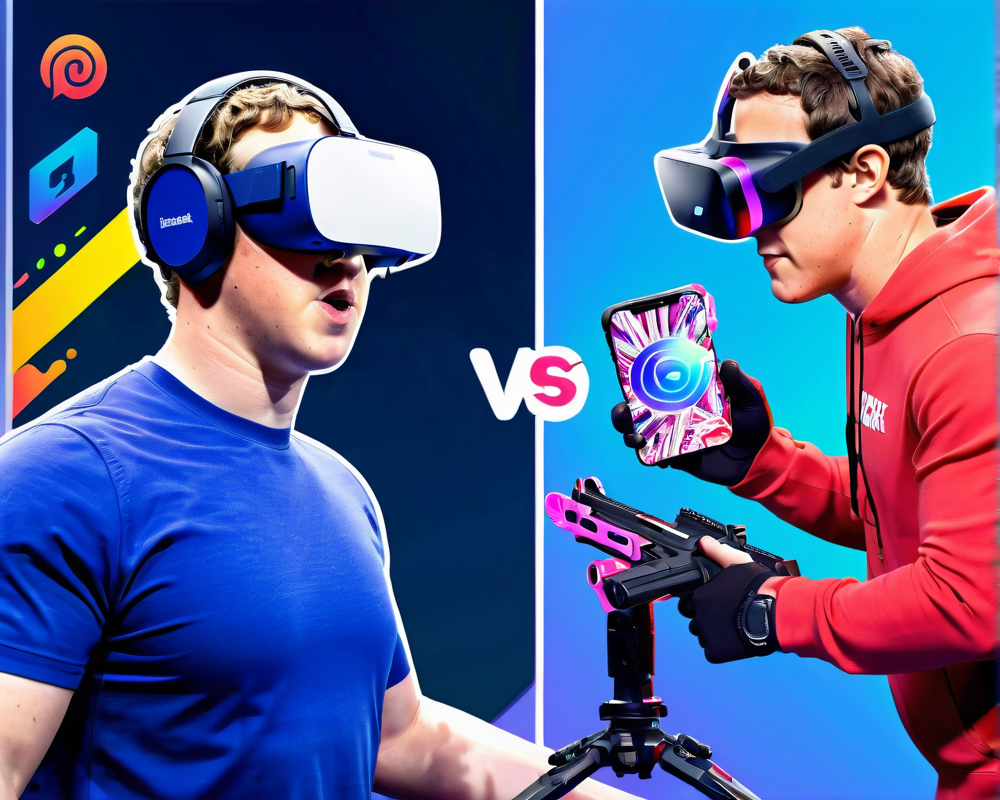The Virtual Reality Tug-of-War
As Meta attempts to stay relevant in the ever-evolving realms of virtual and augmented reality, Apple has thrown a shiny wrench into the works with the announcement of its Vision Pro headset. The world waits with bated breath, wondering how Mark Zuckerberg will respond to this formidable new competitor. Spoiler alert: It’s not going to be a polite tea party.
The Zuckerberg Take on Apple’s Tech
During an all-hands meeting reported by The Verge, Zuckerberg had some interesting things to say about Apple’s latest offering. Yes, he’s curious, but—surprise, surprise—he hasn’t gotten his hands on the gadget yet. It’s hard to craft witty comments about something you haven’t touched, right? He hinted that Meta had “already explored” the technical limitations imposed by the laws of physics, implying that Apple’s solutions are less innovative and more ‘business as usual.’ In tech land, this translates to: “I see your fancy gadget and raise you some basic principles of engineering.”
The Price Tag Dilemma
Now, let’s talk about that jaw-dropping price tag: $3,500. Zuckerberg noted that Apple’s headset reflects a conscious “design trade-off.” In laymen’s terms, while Apple might be enjoying the luxury of a high-resolution display, Meta’s headsets are doing just fine at a fraction of the cost. When you inflate the bill for better visuals and computational abilities, you might want to pack a lunch—or, better yet, a power cord, because you’re going to need it.
Philosophical Differences Galore
What really sets these two tech giants apart? It’s their philosophical outlook. Zuckerberg emphasized how Meta’s vision for the metaverse is inherently social. Unlike Apple’s Vision Pro, which seems designed for solitary couch surfing, Meta Quest is all about creating virtual communities and engaging users in lively interactions.
“Our vision for the metaverse and presence is fundamentally social,” Zuckerberg noted, contrasting it with Apple’s solitary approach, arguing that every demo Apple showcased featured individuals sitting alone.
Technical Features: A Closer Look
Now, about those snazzy features in Apple’s Vision Pro. Unlike Meta’s Quest, which requires controllers, Apple’s device uses eye movements and hand gestures for navigation. It’s like succeeding in a game of charades, but the prize is $3,500. And yes, a translucent display and a lighter design are appealing, but one has to wonder: What’s the pay-off for those conveniences? Is it worth breaking the bank? We’ll leave that to the consumers to decide.
Conclusion: The Race is On
As Apple and Meta plow forward in this virtual reality race, one thing’s clear: The competition is heating up. Zuckerberg may have a few tricks up his sleeve, but Apple is not going to back down easily. Who comes out on top may ultimately depend on consumer preference, tech innovation, and who can avoid being locked in their own virtual reality. Buckle up, it’s going to be an exciting ride!




